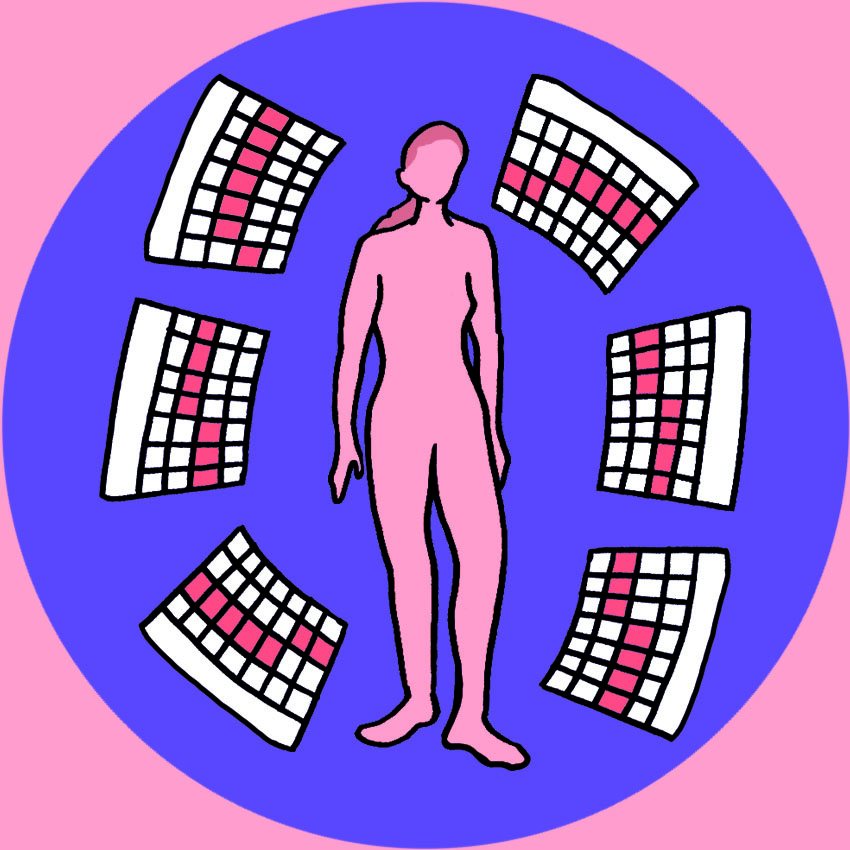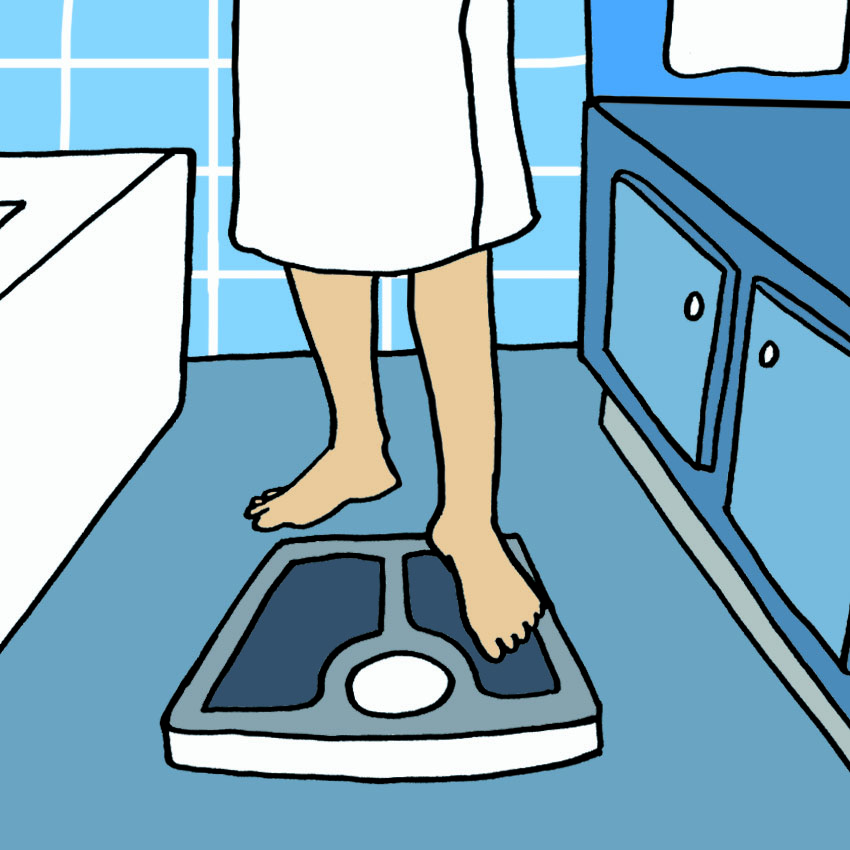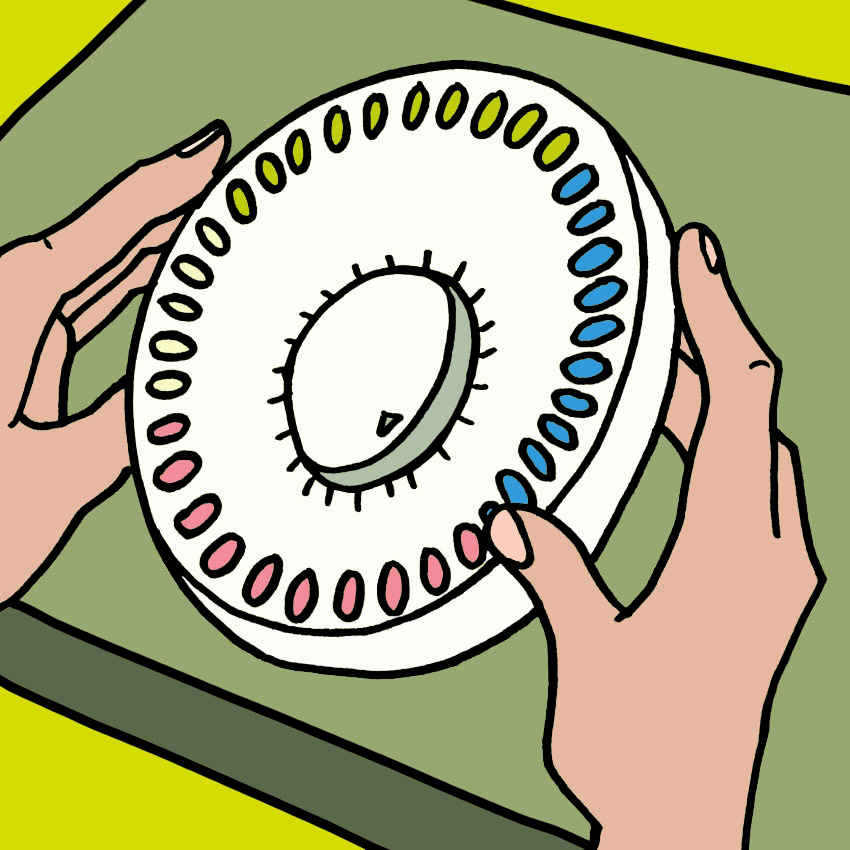Every woman is different, but one thing we can all bond over is our shared monthly gift from Mother Nature.
Of course, like the rest of us, Mother Nature isn't always on time. Sometimes, she misses her monthly appointment altogether. She's a busy lady, who can blame her?
On one hand, a missed period is a blessing. I'd skip the period underwear and cramps any month if I could.
However, depending on how old you are and where you are in life, a missed period can be a scary feeling, or even an indication that there is something more serious going on.
Usually, a test or consulting the calendar can rule out pregnancy as the source of your missed period. But, if it's not that, then what is it?
As it turns out, there are tons of things that can get in the way of your period that have nothing to do with being pregnant.
How Often Should You Get Your Period?

The rule of thumb you're probably familiar with when it comes to how often you get your period is 28 days.
Like many things, this 28-day mark is just an average, and not everyone will follow the same cycle.
According to the Office on Women's Health, a woman's cycle is considered to be normal if it's anywhere from 21 to 35 days in adults.
But if you're going for longer stretches of time without a visit from Aunt Flo, you might be starting to wonder if your body is trying to tell you something.
Reasons For A Missed Period 1. Weight Gain

Most women have a few extra pounds that come and go as they please. A little bit of weight fluctuation is nothing to worry about.
However, a sudden, pronounced weight gain can have an immediate and dramatic impact on your monthly cycle. This kind of abrupt weight gain is most commonly a medication side effect.
Weight changes, including excessive weight gain, is listed as a major reason for missed periods by the Mayo Clinic.
Basically, the new weight changes your hormonal balance and disrupts your cycle.
2. Weight Loss

Again, weight fluctuation will cause a lot of changes in your body and in the way your cycle or reproductive organs will react.
If you've recently lost a lot of weight, it could cause you to miss your period. Even if the weight loss is healthy, the shock of the sudden change can throw your body chemistry out of whack.
On that same note, eating disorders like anorexia or bulimia can also disrupt your cycle, according to the Mayo Clinic.
3. Emotional Difficulties

We all know that emotional upheaval can have an immediate impact on your body. Stress and grief can lead to nausea, headaches, and pain, and can similarly impact your "flow."
Dr. Alyssa Dweck, who wrote the book V is for Vagina, explains that stress, depression, and anxiety can all interrupt your regular cycle.
4. Hormonal Conditions

The hormones that our body produces change many times throughout our lives.
Some of these are expected, like puberty and menopause, but not all hormonal upheavals are predictable.
If you have a condition like PCOS, or polycystic ovary syndrome, you might also experience irregular periods. Many women with PCOS experience unusually heavy periods, but others may skip their cycle completely.
5. Overexercising

Exercise is obviously a healthy activity, but there is some truth to there being too much of a good thing.
SHAPE explains that if you are exercising too much, your body will begin to take drastic measures to store energy.
One of these is skipping your period, which requires a lot of exertion inside our bodies.
6. Birth Control

If you're on birth control, then your doctor has probably warned you about how it might impact your period.
This is especially true if you just started a new type of medication. It could even be in reaction to a change in your body that alters the way you interact with the hormones in your contraception.
Every woman responds to birth control differently, so consult with your doctor if you have any worries.
With some forms of birth control, it's completely normal to lose your period.
7. Travel

Sometimes, something going on completely outside of your body is what is affecting your irregular period.
Often, travel can get in the way of your regular cycle. The first reason for this is simply stress, but time change can also be a factor.
Cosmopolitan explains that jet lag messing with our circadian rhythms can cause our bodies to become disoriented and miss a period.
What To Do?

If you like to count on your period being on time, there are plenty of things you can do to keep it that way.
The best plan of action is to consult your doctor, who can either help prescribe you a contraceptive or help treat a secondary cause like chronic stress or weight loss.
Be sure to SHARE this information with your friends on Facebook!




